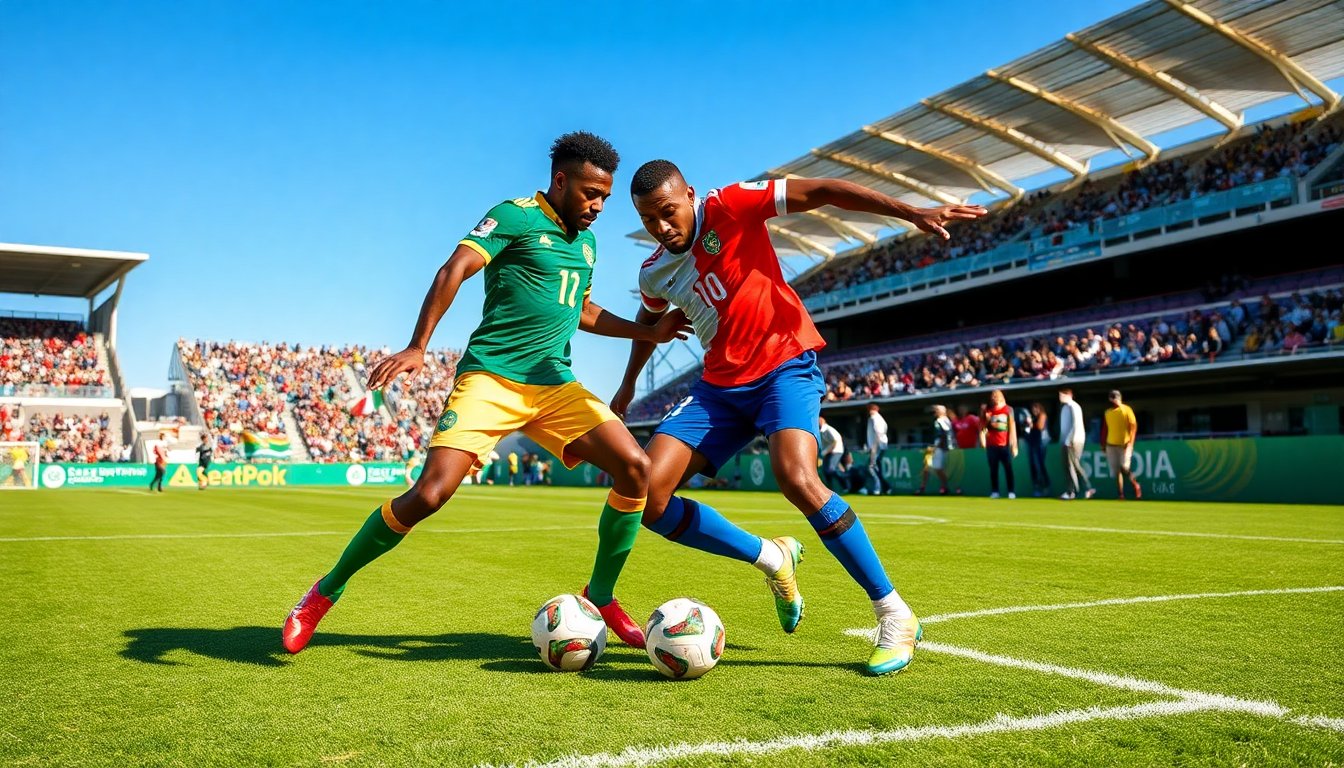Table of Contents
In a highly anticipated clash in Group C of the CAF qualifiers for the FIFA 2026 World Cup, South Africa held Nigeria to a 1-1 draw at the Free State Stadium in Bloemfontein. This match not only showcased the competitive nature of African football but also had significant implications for both teams as they vie for a place in the global tournament.
Match Overview and Key Moments
The match commenced with an electrifying atmosphere as South Africa, known as Bafana Bafana, aimed to solidify their position at the top of the group. The home team took an early lead in the 25th minute when Nigeria’s captain, William Troost-Ekong, inadvertently scored an own goal, sending the South African supporters into raptures. However, Nigeria responded resiliently, with Calvin Bassey equalizing just before halftime, heading the ball into the net and leaving both teams locked at 1-1.
This result was crucial for South Africa, extending their lead at the top of Group C with a six-point cushion and just two matches remaining. For Nigeria, the draw placed them second in the group, ahead of Benin on goal difference, increasing the pressure as they approach their final qualifying matches.
Implications for World Cup Qualification
With this draw, South Africa appears well on its way to automatic qualification for the World Cup. Their remaining fixtures against Zimbabwe and Rwanda seem favorable, suggesting that a first-place finish is within reach. Such a finish not only guarantees a spot in the tournament but also reflects the team’s growth and resilience under pressure.
In contrast, Nigeria’s path is fraught with uncertainty. The Super Eagles must secure crucial points in their upcoming matches against Lesotho and Benin to ensure they finish in the top two of the group. Failure to do so could mean missing out on World Cup qualification, a scenario that is unthinkable for a nation with such a rich footballing history.
Broader Context: Egypt’s Journey in Group A
Looking beyond Group C, Egypt’s quest for World Cup qualification also presents an intriguing narrative. In their recent match against Burkina Faso, Egypt managed a 0-0 draw, a result that keeps them firmly at the top of Group A with 20 points. However, with only the group winners qualifying directly for the World Cup, Egypt must secure at least two points from their last two fixtures against Djibouti and Guinea-Bissau to confirm their place in the tournament.
Egypt’s coach, Hossam Hassan, expressed satisfaction with the team’s performance despite the lack of goals, highlighting their ability to create significant chances against a tough opponent. This blend of tactical discipline and attacking intent will be crucial as they navigate the remaining fixtures, aiming for their fourth World Cup appearance.
Looking Ahead: The Road to FIFA 2026
The CAF qualifiers for the FIFA 2026 World Cup are shaping up to be intensely competitive, with several teams in contention for the precious spots available. As South Africa and Egypt move closer to their goals, Nigeria must regroup and focus on their strategy to ensure they do not slip further down the table. The upcoming matches promise to be thrilling encounters, with the stakes higher than ever for all teams involved.
In conclusion, as the qualifiers progress, the importance of each match cannot be overstated. For South Africa, the dream of World Cup participation is within reach, while Nigeria faces a critical juncture in their campaign. The upcoming fixtures will not only determine which teams advance but will also highlight the evolving landscape of African football as it prepares for the global stage.


